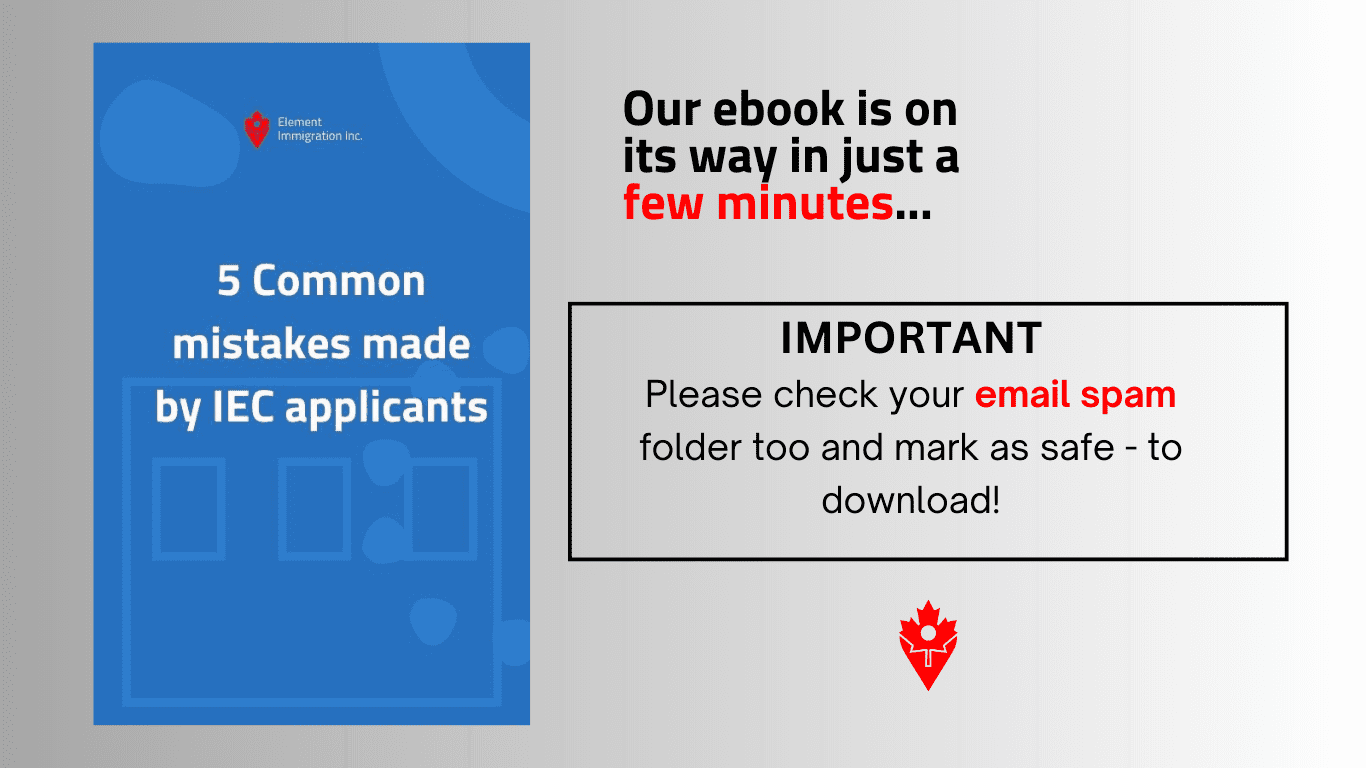
Types of Work Permits
LMIA based Work Permits | LMIA exempt work permits | NAFTA and CETA work permits | Intra-Company Transfer work permits | Business Visitors | Post-Graduation work permits
However, the work permits can be grouped into 2 categories, Employer-specific work permits and Open work permits.
Employer-specific work permits
An employer-specific work permit allows you to work according to the conditions on your work permit, which include
- The name of the employer you can work for,
- How long you can work, and
- The location where you can work (if applicable).
Let's Connect
Open work permits
You may be eligible for an open work permit if you
- Are an international student who graduated from a designated learning institution and are eligible for the Post-Graduation Work Permit (PGWP) Program.
- Are the spouse or common-law partner of a skilled worker or international student.
- Applied for permanent residence in Canada (Bridging open Work Permit).
- Are the foreign national who have submitted an application for permanent residence under the spouse or common-law partner in Canada class (SCLPC).
- Are a dependent family member of someone who applied for permanent residence.
- Are a student who’s no longer able to meet the costs of your studies (destitute student).
- Are a refugee, refugee claimant, protected person or their family member.
- Are under an unenforceable removal order.
- Are a temporary resident permit holder, or
- Are a young worker participating in special program.
In each of these situations, you must meet additional criteria to be eligible.
- Have a valid study permit when applying for the work permit
- Have continuously studied full time in Canada (i.e., studies must have taken place at a Canadian educational institution) and have completed a program of study that is at least 8 months in duration
- Have completed and passed the program of study and received a written notification from the educational institution indicating that they are eligible to obtain a degree, diploma or certificate; the educational institution must be one of the following:
- A public post-secondary institution, such as a college, trade or technical school, university or CEGEP (in Quebec)
- A private post-secondary institution that operates under the same rules and regulations as public institutions
- A private secondary or post-secondary institution (in Quebec) offering qualifying programs of 900 hours or longer leading to a diploma of vocational studies (DVS) or an attestation of vocational specialization (AVS)
- A Canadian private institution authorized by provincial statute to confer degrees (i.e., bachelor’s degree, master’s degree, doctorate), but only if the student is enrolled in one of the programs of study leading to a degree, as authorized by the province, and not in just any program of study offered by the private institution
Applicants must apply for a work permit within 90 days of receiving written confirmation (e.g., an official letter or transcript) from the educational institution indicating that they have met the requirements for completing their program of study. Calculation of the 90 days begins the day the student’s final marks are issued or the day formal written notification of program completion is received, whichever comes first.
If you’re a spouse or family member of someone working or studying temporarily in Canada, You may be eligible for anopen work permit if you’re:
- A spouse of a skilled worker in an occupation under the National Occupational Classification (NOC) skill level 0, A or B approved to work in Canada for six months or longer. This skill level requirement does not apply to principal temporary foreign workers who have been nominated for permanent residence by a province (provincial nominees).
- A spouse of a foreign student at a public post-secondary school, such as a college or university or collège d’enseignement général et professionnel (CEGEP) in Quebec,
- A family member of a foreign military member who is working in Canada.
If your spouse has an open work permit (e.g. post-graduation work permit), you must attach a copy of your spouse’s work permit to your application for an open work permit, along with:
- A letter from your spouse’s current employer that confirms they work there in a NOC 0, A or B occupation, or a copy of your spouse’s employment offer or contract, and
- A copy of your spouse’s recent pay slips.
Bridging open Work Permit lets you keep working while you wait for the results of your permanent residence application. You may be eligible for a bridging open work permit if:
- You applied for permanent residence.
- Your current work permit expires in 4 months or less.
- You have valid status on your work permit.
- You are currently in Canada.
Similarly, every other category of open work permit has its own specific requirements.
- Prove to an officer that you will leave Canada when your work permit expires. You can include many supporting documents to support this claim. For example: your family ties, employment etc.
- Show that you have enough money to take care of yourself and your family members during your stay in Canada and to return home. You can include your financial documents.
- Obey the law and have no record of criminal activity (IRCC may ask you to provide a police clearance certificate)
- Not be a danger to Canada’s security,
- Be in good health and have a medical exam, if needed,
- Not plan to work for an employer listed with the status “ineligible” on the list of employers.
- Not plan to work for an employer who, on a regular basis, offers striptease, erotic dance, escort services or erotic massages, and
- Give the officer any other documents they ask for to prove you can enter the country.
Work Permit from outside Canada
To come to Canada as a temporary foreign worker, you must get a work permit. In general, you need to apply for a work permit from Element Immigration, Refugees and Citizenship Canada (IRCC) before you come to Canada. You must apply to a visa office outside Canada if you need a visa to enter Canada or if you need to have a medical exam before you come to Canada. You need to get a job offer and some other documents from a Canadian employer before you apply.
Work Permit from inside Canada
You can apply for a work permit from inside Canada if you are currently in Canada and
- Have a valid study or work permit, or your spouse or parents have a study or work permit
- Have graduated from a program at a Canadian university, community college, CÉGEP, publicly funded trade/technical school, or other eligible school.
- Have a temporary resident permit that is valid for six months or more,
- Have applied or been included in an application for permanent residence from inside Canada (you will have to pass certain stages in the main application process to be eligible for a work permit)
- In some other scenarios.
Work Permit at the port of entry
You may apply for a work permit on arrival at a port of entry (POE) in Canada if the following applies
- You are exempt from the requirement for a temporary resident visa and your job falls within the International Mobility Program (i.e., you are not required to obtain a Labour Market Impact Assessment [LMIA]);
- You are exempt from the requirement for a temporary resident visa and your job falls within the Temporary Foreign Worker Program (i.e., you are required to obtain an LMIA) and a positive or neutral LMIA has been issued by the time you arrive, and your employer has completed all of the steps for your type of work permit
- You are a national or permanent resident of the U.S., Greenland or Saint-Pierre and Miquelon regardless of whether your job falls with the Temporary Foreign Worker Program or the International Mobility Program.
- You will not be working as a live-in caregiver or as a seasonal agricultural worker
In addition to the above, you must have completed your element immigration medical examination, if required, before your arrival. If you’re a citizen of an eTA-required country, you’ll need to get an eTA if you plan to fly into Canada. IRCC recommends that you apply for your work permit before you travel to Canada.
Work permits based on skill types
High Skilled Work Permits
High skilled work permits are obtained in an occupation under the National Occupational Classification (NOC) skill level 0, A or B. Generally, for skilled work permits, applicant need to have 1-3 years of experience depending upon the occupation and in certain cases only relevant education can fulfill the job requirements. Applicants also need to prove their English or French language skills to meet the job requirements.
Low skilled work permits
Low skilled work permits are obtained in an occupation under the National Occupational Classification (NOC) skill level C & D. Low skilled work permits require maximum of high school education or job specific training. Applicants also need to prove their English or French language skills to meet the job requirements.
Low skilled work permits under agriculture stream
Low skilled work permits under agriculture stream generally do not require any specific language skills, education and experience. You still need to meet all general eligibility requirements for work permit.
Under low skilled work permits, generally employers pay return airfare, ensure that affordable and suitable accommodation is available, provide temporary medical insurance coverage, register workers with provincial workplace safety insurance plans, sign an employer-employee contract.
How Element Immigration can help?
- We can help foreign nationals and foreign workers to apply for Canadian Work Permit which authorizes them to legally work in Canada.
- We work with Canadian employers who require workers to fill the labour/skill shortage.
- We can apply for approval of Labour Market Impact Assessment (LMIA) to Employment and Social Development Canada (ESDC) on behalf of employers.
Contact us for assessment and more information

